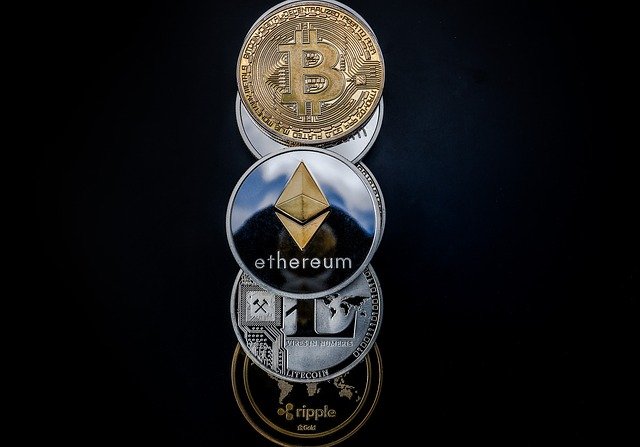- Crypto is a method for people in Lebanon and other comparable nations to generate money without having to work a traditional job
- Since 2019, the country has been experiencing an economic crisis. People began to switch to cryptocurrencies as a result of their financial issues
- Lebanon is experiencing hyperinflation. Banks promised the populace in 2019 that they will provide fantastic interest rates of 10% on the dollar and 15% on the Lebanese pound
Crypto is a method for people in Lebanon and other comparable nations to generate money without having to work a traditional job. An anonymous Redditor said, Crypto is also a way to substitute the local money, which is plunging every week. The Lebanese lira plunged to its all-time lowest market value versus the US dollar, with a little-to-no indication of recovery, financial writer Omar Tamo said on November 24, 2021.
Since 2019, the country has been experiencing an economic crisis. People began to switch to cryptocurrencies as a result of their financial issues. Crypto provides an escape from Lebanon’s unfortunate circumstances since it is decentralized and independent of state control. In an exclusive interview with DailyCoin, Elie M., a 30-year-old Lebanese, discussed how people in his nation struggle and how cryptocurrency offers an escape for locals, albeit with many barriers.
ALSO READ: POLKADOT WOULD NEED BITCOIN’S REVIVAL TO SEE AN UPTICK
Lebanon is experiencing hyperinflation. Banks promised the populace in 2019 that they will provide fantastic interest rates of 10% on the dollar and 15% on the Lebanese pound. All consumers had to do was deposit their money in a bank for three to five years. That sounded good, and Elie added that practically every Lebanese trusted the banks and placed their money there. After banks refused to enable residents to withdraw money, the revolution occurred in late 2019. Currency inflation and depreciation occurred as a result of politicians stealing money and depositing it in their own overseas bank accounts.
The central bank then took all of the money from the banks as loans, which was the money of the people. As a result, the banks ran out of money, and Lebanese citizens are still unable to withdraw their own hard-earned cash. Her father has been accumulating money for 14 years in the family company, as have most Lebanese who have their life savings in the bank. They are no longer able to touch it. You can’t get the cash-out, so you simply sit there and wait; the bank won’t give you any, Elie explained. In addition, the rate was rising at the same time. Previously, one dollar equaled exactly 1,500 Lebanese pounds. At the time, one dollar is worth 23,500 Lebanese pounds, a 20-fold decrease in value.
Elie responded, by giving an example that she used to be paid $1,000 each month, which was equivalent to 1,500,000 Lebanese pounds at the time. The paychecks are still 1,500,000 Lebanese pounds, but with the current value of about 24,000 Lebanese pounds for $1, I’ll be earning around $50 instead of $1,000. You can’t do anything about it. Everyone protested, attempted to shut down the streets, attacked MPs’ homes, and targeted banks. There was no action. Many young people are now trading cryptocurrencies. There are a lot of threads regarding crypto on Reddit, with a lot of individuals asking how to register accounts, deposit money, and trade. However, Bitcoin is difficult to understand, and the majority of people are still new to it.
Elie went on to explain his background that from 2009 to 2012, she studied computer science at the American University of Beirut. And she dimly recalls hearing about Bitcoin, which was nothing back then; people used to swap Bitcoins for pizzas. No one could have predicted Bitcoin’s current status. Back in 2016, Bitcoin began to rise above 5,000 dollars. she considered joining crypto once again, but it appeared to be incredibly volatile, and she didn’t comprehend it. Mining, on the other hand, is inefficient in Lebanon, where electricity is a problem. People employ backup generators when electricity is only available for six to eight hours a day. Electricity is being reduced more and more, and the cost of everything is increasing.
When COVID arrived, many people began exploring digital coins, and a slew of other cryptocurrencies sprung up. Cryptography has piqued the curiosity of a growing number of people. She recalls reading a Reddit post where a Lebanese was urging other residents to join him in crypto trading. When the revolution began, it was around two years ago, exactly a year and a half ago. He was even handing out BTC or BNB valued at roughly $2. He explained everything to me when she informed him she wanted to join.

Andrew is a blockchain developer who developed his interest in cryptocurrencies while pursuing his post-graduation major in blockchain development. He is a keen observer of details and shares his passion for writing, along with coding. His backend knowledge about blockchain helps him give a unique perspective to his writing skills, and a reliable craft at explaining the concepts such as blockchain programming, languages and token minting. He also frequently shares technical details and performance indicators of ICOs and IDOs.


 Home
Home News
News










